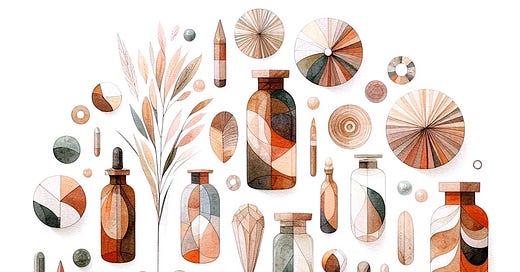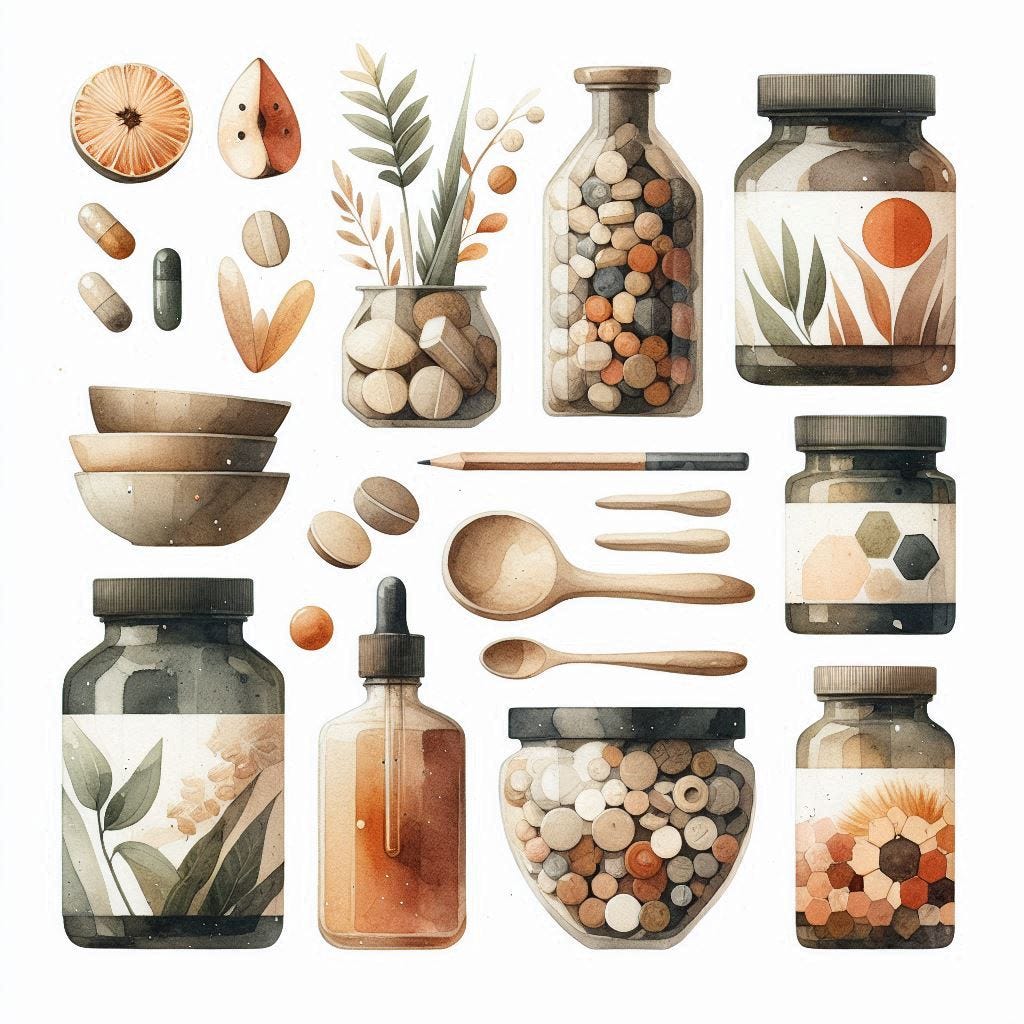The Risk of Taking Supplements That Nobody Is Talking About
And a practical guide to using supplements with care
One of the byproducts of having such a heavily regulated healthcare system is that we’ve been misled to believe that anything that does not require a prescription is safe. If we can buy a medication, an herb or a supplement over the counter, we trust that the regulators have deemed it safe enough for us to use without caution. Now, I’m all for people feeling safe and having access to the medicinal products of their choice- so I want to be clear that I am not suggesting that we need more regulation.
But after 2 decades of medical training and practice I have a lot of hesitation when it comes to trusting the regulators or any part of the conventional medical system with our safety. There are some very obvious reasons for this, such as a long history of pulling products from the market that have formerly been declared safe. But the main reason I don’t trust the regulators is because I find the entire ideology of the highly regulated system to be flawed, imbalanced, and quite frankly, sick. And how can any of us be expected to trust a sick system with our healing?
The Ideological Flaw
The conventional medical paradigm is built on the illusion that we know more than we do. Over and over again it draws fixed conclusions about living systems and dynamic concepts that require an entire lifespan to be understood. While this attitude of certainty can help us feel safe during health challenges, it’s dishonest. It makes true informed consent impossible (which has spiritual implications that I’ll discuss in a future piece), and it limits our healing potential- because what we don’t yet know is the seed of innovation and progress.
As a holistic provider, what I find most frustrating about this is that a three word declaration could bring the whole system into integrity, but the stake holders are too arrogant to simply say WE DON’T KNOW.
This ideological flaw penetrates every part of the medical system and there are so many ways in which we can benefit from embracing the unknown in medicine. This is one of the reasons I place so much emphasis on the spiritual quadrant of health- because it’s the part of our health that maintains our connection to the great mystery. When we embrace the unknown, our healing potential expands. You can read more about this in What Does Spirituality Have to Do With Healthcare?
What does this have to do with supplements?
Like any integrative medicine provider, nutritional supplements are an important tool in my medicine bag. In some cases supplements can leverage the innate intelligence of the body in ways that pharmaceuticals cannot, and in the name of healing, this is invaluable. But like any medicine, supplements can heal and they can harm, so they need to be used thoughtfully. Just because something is “natural” doesn’t mean it’s entirely benevolent. There are many forms of poison in nature, so “natural” does not always imply safety.
It’s estimated that over 70% of adult Americans take supplements, and it’s not uncommon for new clients to come to me taking a long list of them. When I ask why they are taking so many supplements and how they are benefitting, they often don’t know.
Self awareness is an important part of the healing process, so when we’re taking a long list of supplements without any awareness of the intention or effects, our efforts can create resistance to the healing process. Using supplements to mitigate symptoms as an alternative to pharmaceuticals does not free us from the ideology of the sick-care system, nor does it address the root cause of dis-ease.
And when we’re taking long lists of supplements for preventative purposes without any perceivable benefit, we’re putting a lot of trust in whatever data or sources recommended those supplements. Healing is a holistic process. It must engage the physical, mental, emotional and spiritual aspects of the self. Supplements can play an important role in healing but when guided by a system that is out of integrity with the whole, there are real risks.
Our ancestors did not take numerous supplements a day to maintain wellbeing, and neither did our grandparents. I realize they their life expectancy and quality of life may not be as favorable as ours, and I also realize that our healthcare needs are not the same as they once were. However, if we’re relying on data to draw conclusions about the safety and efficacy of taking daily supplements for extended periods of time, we have nothing to rely on because people have not been taking supplements regularly and ongoing for very long. It wasn’t until the 1970s that supplements became popular and widely available, so many of the supplements we’re using today are still very new.
I’m not trying to say that we shouldn’t take supplements. In fact, there are good reasons why supplements became popular in the 70s, such as the relationship between modernized agriculture and nutrient deficiencies.
But I want us to be more honest about what we do and don’t know, and I want us to approach supplements with the same amount of consideration and care that we approach pharmaceuticals.
When it comes to supplements, we simply don’t know what we don’t know … yet! The big risk that no-one is talking about, but all of us should be thinking about, is the risk of the unknown. This doesn’t mean the risk is big- but it means we have to asses benefits versus the risks with the presence of an unknown.
In the next section I’ll share a guide to help you navigate safe and responsible supplement use so that you can wreak the benefits and minimize the risks, known and unknown.
Keep reading with a 7-day free trial
Subscribe to Becoming Whole x Dr. Erica Matluck to keep reading this post and get 7 days of free access to the full post archives.







